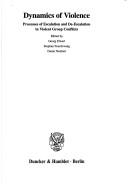| Listing 1 - 10 of 11 | << page >> |
Sort by
|
Book
ISBN: 3030171108 3030171116 Year: 2019 Publisher: Cham : Springer International Publishing : Imprint: Palgrave Macmillan,
Abstract | Keywords | Export | Availability | Bookmark
 Loading...
Loading...Choose an application
- Reference Manager
- EndNote
- RefWorks (Direct export to RefWorks)
This book contends that conventional class concepts are not able to adequately capture social inequality and socio-cultural differentiation in Africa. Earlier empirical findings concerning ethnicity, neo-traditional authorities, patron-client relations, lifestyles, gender, social networks, informal social security, and even the older debate on class in Africa, have provided evidence that class concepts do not apply; yet these findings have mostly been ignored. For an analysis of the social structures and persisting extreme inequality in African societies – and in other societies of the world – we need to go beyond class, consider the empirical realities and provincialise our conventional theories. This book develops a new framework for the analysis of social structure based on empirical findings and more nuanced approaches, including livelihood analysis and intersectionality, and will be useful for students and scholars in African studies and development studies, sociology, social anthropology, political science and geography.
Ethnology-Africa. --- Social Structure, Social Inequality. --- African Culture. --- Sociology of Culture. --- Social structure. --- Social inequality. --- Ethnology—Africa. --- Culture. --- Cultural sociology --- Culture --- Sociology of culture --- Civilization --- Popular culture --- Egalitarianism --- Inequality --- Social equality --- Social inequality --- Political science --- Sociology --- Democracy --- Liberty --- Organization, Social --- Social organization --- Anthropology --- Social institutions --- Social aspects --- Equality.
Book
ISBN: 3932187660 Year: 2008 Publisher: Kassel Kasseler fotoforum
Abstract | Keywords | Export | Availability | Bookmark
 Loading...
Loading...Choose an application
- Reference Manager
- EndNote
- RefWorks (Direct export to RefWorks)
Book
ISBN: 3927581070 Year: 1995 Volume: 9 Publisher: Mainz Johannes Gutenberg-Universität
Abstract | Keywords | Export | Availability | Bookmark
 Loading...
Loading...Choose an application
- Reference Manager
- EndNote
- RefWorks (Direct export to RefWorks)
Developing Countries --- Civilization. --- Social conditions. --- Developing countries --- Social conditions --- Civilization
Book
ISBN: 9783030171117 Year: 2019 Publisher: Cham Springer International Publishing :Imprint: Palgrave Macmillan
Abstract | Keywords | Export | Availability | Bookmark
 Loading...
Loading...Choose an application
- Reference Manager
- EndNote
- RefWorks (Direct export to RefWorks)

ISBN: 3428099575 Year: 1999 Volume: 1 Publisher: Berlin : Duncker & Humblot,
Abstract | Keywords | Export | Availability | Bookmark
 Loading...
Loading...Choose an application
- Reference Manager
- EndNote
- RefWorks (Direct export to RefWorks)
Violence --- Aggressiveness. --- Agressivité --- Social aspects --- Aspect social --- Agressivité --- Violence. --- Social aspects.
Book
ISBN: 3031149963 3031149955 Year: 2022 Publisher: Cham, Switzerland : Springer International Publishing,
Abstract | Keywords | Export | Availability | Bookmark
 Loading...
Loading...Choose an application
- Reference Manager
- EndNote
- RefWorks (Direct export to RefWorks)
Digital
ISBN: 9783031149962 9783031149955 9783031149979 9783031149986 Year: 2022 Publisher: Cham Springer International Publishing
Abstract | Keywords | Export | Availability | Bookmark
 Loading...
Loading...Choose an application
- Reference Manager
- EndNote
- RefWorks (Direct export to RefWorks)
The debate on governance originates in the OECD world. At the latest since the postcolonial debate, we know that we need to "test" our assumptions under radically different conditions. This book offers an extended perspective of local self-governance by examining cases from South Asia, Africa, and Latin America, together with a study of militias in the USA. The chapters present a wide variety of local actors who pursue different notions of order legitimized by local traditions based on hierarchy or deeply rooted communalism, Islamic theology, or grassroots democracy. Some local actors claim a state-like authority and challenge the territorial state. In such cases, there is no longer "a shadow hierarchy" but opposition to the state. Different violent actors fight for supremacy, and the state is just one actor among others. The empirical studies presented in this book show how different kinds of local self-governance are combined with varieties of statehood, and thus contribute to an understanding of the notion of governance in a fundamental sense that goes beyond the special case of the OECD world.
Political systems --- International relations. Foreign policy --- Politics --- Public administration --- internationale politiek --- Afrikaans --- overheid --- politiek --- Asia --- North Africa --- Africa
Digital

ISBN: 9783839439104 9783837639100 Year: 2017 Publisher: Bielefeld transcript Verlag
Abstract | Keywords | Export | Availability | Bookmark
 Loading...
Loading...Choose an application
- Reference Manager
- EndNote
- RefWorks (Direct export to RefWorks)
Digital

ISBN: 9783112402573 9783879975860 Year: 2021 Publisher: Berlin Klaus Schwarz Verlag
Abstract | Keywords | Export | Availability | Bookmark
 Loading...
Loading...Choose an application
- Reference Manager
- EndNote
- RefWorks (Direct export to RefWorks)
Digital

ISBN: 9783112402634 9783879975952 Year: 2021 Publisher: Berlin Klaus Schwarz Verlag
Abstract | Keywords | Export | Availability | Bookmark
 Loading...
Loading...Choose an application
- Reference Manager
- EndNote
- RefWorks (Direct export to RefWorks)
| Listing 1 - 10 of 11 | << page >> |
Sort by
|

 Search
Search Feedback
Feedback About UniCat
About UniCat  Help
Help News
News